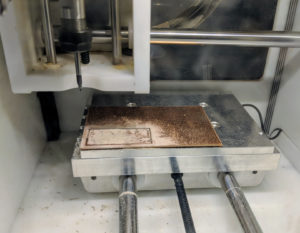Someone recently asked me what questions they should ask when interviewing for a software engineering position. Here are some of my favorite questions based on my experience as an interviewee, interviewer, and hiring manager.
My top priority when asking questions is to assess how well I’d fit into the team/organization. As a side-bonus, asking good questions also allows me to communicate my values and interest to the organization.
Early on in the interview process:
These can be asked at the end of a technical / behavioral interview.
- What has been your team’s biggest accomplishment in the last year? This gives you a sense of what the manager and the team values, how they plan (lots of little launches vs big launches), and how they celebrate success.
- What are the most interesting challenges that your team is working on in the next 6 months / year? This gives you a sense of how quickly the team moves. At a large company, a project that might take a few weeks in school can take months. It will also tell you what interesting engineering problems you will learn to solve.
- What’s your favorite part of the team? What do you wish could be better? Different answers I’ve gotten about favorite parts of the team: everyone is really smart, the team is really supportive of each other, everyone’s really professional, people are really passionate about the product — every response helps you picture what sort of environment the team is.
Later on in the process, to your manager:
Ask these in interviews when you’ve passed the initial screen and are assessing team fit.
- What’s your perspective on supporting women engineers? The amount of nuance that your manager gives you will tell you how much they think about this as an issue. A standard response may be about maternity leave. Managers who have thought about it more may mention more things such as meeting norms, sponsorship, women’s specific groups within the company, examples, etc.
- If the previous question goes well: What’s your experience growing and developing the careers of women on your team?
- Can I speak with one of the female software engineers in the organization?
You can also ask similar questions other groups that you’re curious about: e.g. LGBT, people of color, other minorities, etc.
Later on in the process, to anyone on the team:
- How would you describe the team culture? Would you describe the team as chatty and social versus professional? What does the team do together? I like hearing specific examples of what the team does together. This will allow you to gauge whether the team fits with your lifestyle / social needs. For example, some teams might go out to dinner together biweekly and hang out socially after work, while other teams are strictly 9am-5pm work affairs.
- What’s the developer experience like? Any honest answer should include pain points because there are always pain points!
- What hours did you work this past week? What hours do people typically work on the team? Helps you get an honest answer of what hours to expect. I’ve interviewed at places where I’ve found out that everyone works 55–60 hours. For those interviewing at startups, I would avoid places that glorify working long hours, or at least dig deeper into how the team approaches project/product management.
Situation-specific questions
- How do decisions get made?
- How does this team fit into the organization’s goals?
- How quickly has the team grown? What is the turnover of the team like?
A final tip for new grads
Don’t worry about asking all of these questions. I would pick a few that are most important to you. You can also spread them out across different interviews.
You will be able to grow and learn in many positions! Every team has trade-offs. It’s only with experience that you start to understand yourself and identify what’s most important to you in a job/team.
